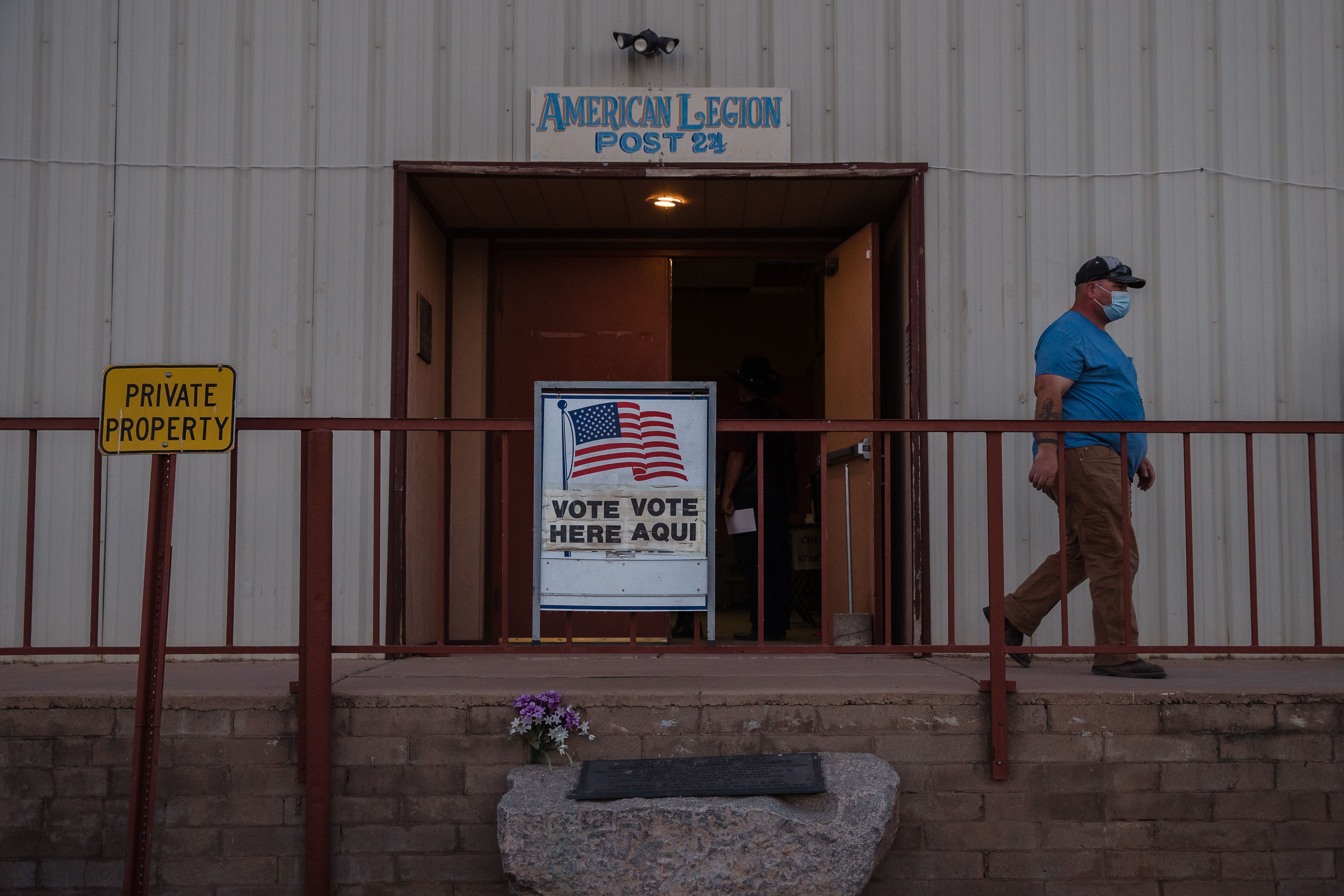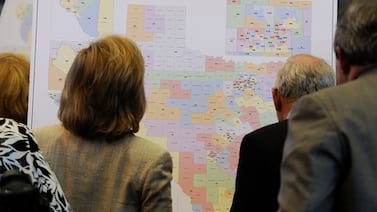A version of this post was originally distributed in Votebeat’s weekly newsletter. Sign up here.
Hi, y’all,
We are, again, experiencing a lot of drama centered around the certification of local election results in Arizona and Pennsylvania. To this point, despite some stumbles, things have been just fine. Voting concluded, ballots have been cured, mailed ballots and provisional ballots have been counted.
But then, once all that’s done at the local level, we convene some … people? Who vote … on something? And then, bang-bam-boom: certified. It’s a weird way to finalize a process that, otherwise, makes quite a lot of sense.
It is — as we hear, over and over and over again on the news — a “ceremonial” step, but it is the one that seems to cause the greatest number of headaches. It’s rarely the things that take effort (like the cure process, or the counting of the thousands of absentee ballots) that become a problem. Instead, it’s a group of random people — often jobs given out on a patronage basis, or local politicians whose jobs have little to do with the substance of elections — who stand in the way of an otherwise smooth election process, screaming about made-up stuff.
Take Arizona’s Cochise County, for example. The election was fine there. There were no actual problems in Cochise, even as Maricopa County’s printer problems made national news. Before Cochise’s board of supervisors was that question: Did elections here, in Cochise, produce complete results from every precinct? If yes, select “certify.”
The two Republicans and one Democrat who make up the county’s board of supervisors were tasked with checking that box. It should have taken only a few minutes out of their year of running the rest of the county’s business. But, for reasons unknown, the two Republicans have subjected themselves to potential criminal exposure by refusing to certify the results until a judge ordered them to, apparently to protest the issues in Maricopa (which, you’ll recall, is an entirely different county they have nothing to do with).
These are baffling roadblocks, and (as far as I can tell) they are largely vestigial. Some states (like Maine) allow election officials to certify results themselves, and rarely experience such issues. For localities in these states, the certification process finalizes the long counting process, passing the results along to the next stage at the state level. But, elsewhere, local boards that have little to do with the administration of elections and have no specific expertise in election issues are allowed to determine the fate of thousands of votes. And these local officials, used to exercising actual authority over matters like the county budget, sometimes struggle with the idea that they actually have no discretion on this one.
The function performed by these boards may once have served a meaningful purpose as a check against real wrongdoing — when elections were poorly standardized and it was left to such boards to provide clarity when disputes arose — but it’s not clear that they do any longer. While malfeasance was once in-your-face and often criminal and, thus, appropriately addressed by a public board, the issues now meaningfully adjudicated by this process are typically procedural and almost entirely fixable in the normal course of things.
At the national level, allies of former President Donald Trump attempted to convince Mike Pence, then the vice president, that his role in certification was more than purely ceremonial. He refused, but the violent people who ransacked the U.S. Capitol on Jan. 6, temporary halting certification, believed it.
Congress is now considering reforming the Electoral Count Act and legislation to do so has won strong bipartisan support, Sen. Amy Klobuchar, the Minnesota Democrat working on the effort, said at an event sponsored by Issue One in Washington, D.C., last week. “It explicitly rejects this claim that somehow the vice president can override the will of the people,” she said, describing it as “imperative” to pass by the end of the year.
At the state level, there is no obvious widespread solution to this quagmire. State legislatures would have to change the process in most places. Efforts to modernize the approach would, of course, be panned as an attempt to remove public oversight from a process the voters have already been primed to distrust.
Politics, it seems, has filled the vacuum left behind by purpose.
Am I missing something about this process? Is there a shining example of one of these boards taking action against a meaningful problem? Tell me.
New From Votebeat
The drama over certifying Arizona’s election played out across the state, from Maricopa, the state’s largest county, south to Cochise County, and north to Mohave and Yavapai counties, as counties’ supervisors — mostly Republicans — faced pressure to reject the election results based on vague allegations of malfeasance and machine vulnerabilities. Jen Fifield reports on the certification drama for Votebeat Arizona.
Pennsylvania’s policy of rejecting undated and incorrectly dated absentee and mail ballots is more likely to impact voters from communities with larger non-white populations, a Votebeat and Spotlight PA analysis of data from three urban counties has found, Carter Walker reports for Votebeat Pennsylvania.
Recount petitions, claiming without evidence that fraud occurred during Pennsylvania’s 2022 election, are now delaying the state’s certification of results. An obscure section of state law allows such petitions to be easily filed, and right-wing groups appear to be exploiting that provision to an unprecedented degree this year, gumming up the works, Walker reports for Votebeat Pennsylvania.
Votebeat Texas’ Natalia Contreras collaborated with This American Life on this audio story about Tarrant County Election Administrator Heider Garcia’s patient approach to election skeptics. Listen to it here and read the print version of the piece here.
Also: Congratulations to Jen Fifield for her honor from the Arizona Press Club! Jen won second place as Arizona Journalist of the Year for her coverage of last year’s Cyber Ninas’ election review for the Arizona Republic. The judges commented: “Jen Fifield’s dogged reporting helped readers follow along the perplexing Maricopa County ballot audit. She put the audit into context, clearly described the unanswered questions and followed the money. A job well done.” We’re proud to have Jen continuing the same expert, high-quality election coverage at Votebeat.
In Other Voting News
- Cochise County supervisors certified the county’s election Thursday in a 2-0 vote after a court ordered the board to do so, the Arizona Republic reported. Two members of the three-member board, both Republicans, had refused to certify, suggesting ballot tabulators had not been properly certified, despite assurances from state and local election officials that they had been.
- A Michigan man has paid a six-figure deposit towards a partial recount of votes in 500 precincts around the state on an abortion-related ballot proposal, although the recount is unlikely to change the outcome, the Detroit News reported.
- Georgia voters are breaking daily records for early voting, but a newly shortened early voting period for runoff elections means it’s unlikely they’ll surpass turnout numbers set in 2021’s U.S. Senate runoff, the New York Times reported.
- A coalition of groups are pushing back on a proposal to make it more difficult for voters to amend the state Constitution, a proposal backed by Secretary of State Frank LaRose, news5 Cleveland reported. The proposal would require citizen-backed amendments to receive 60% of the vote to pass, rather than a majority.
- An Ohio judge sentenced two right-wing operatives responsible for misleading robocalls meant to deter voters of color from casting ballots in 2020 to spend 500 hours registering low- and mid-income voters in the Washington, D.C., area, as well as probation and electronic monitoring, CNN reported. Jacob Wohl and Jack Burkman also face charges in other states in connection with the calls.
Jessica Huseman is Votebeat’s editorial director and is based in Dallas. Contact Jessica at jhuseman@votebeat.org.






